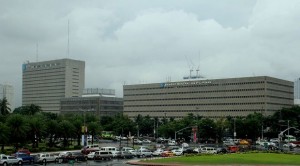Shadow banking clampdown readied
Regulators are set to impose stricter disclosure rules on lending firms that extend financing to the public amid efforts to shine a light on the so-called shadow banking activities in the country.
Stiffer regulations on local banks have pushed more money to flow through less-supervised institutions such as real estate firms or car dealerships that offer in-house financing deals to clients.
New regulations being drafted by the Bangko Sentral ng Pilipinas (BSP) seek to measure the extent of this phenomenon that has also been observed overseas.
Lending by non-banks are “less regulated by the supervisory agencies and are mostly unregulated,” the BSP said in a new economic newsletter published this month. These institutions, the BSP said, are often referred to as “shadow banks.”
“It is for this reason that other financial corporations became more prone to the build-up of risks and vulnerabilities to macroeconomic shocks,” the BSP said.
Data on this segment of the financial system will be captured through a so-called Other Financial Corporations Survey (OFCS). This will be patterned after the BSP’s monthly depositor corporations survey that measures the amount of loans banks extend every month. It also shows which sectors get the most money.
Once stricter disclosure standards for non-banks are in place, information gathered may be consolidated with the monthly bank lending data, which is reported to the public every month.
Bank lending data is released together with data on monetary aggregates, particularly money supply or domestic liquidity, every month.
“The OFCS completes the monetary statistics framework as it provides a more comprehensive and appropriate measure of all the claims on and liabilities to the other sectors by consolidating the other financial corporations with the depository corporations,” the BSP said.
At present, the depository corporations survey serves as the main database of monetary data in determining the components of broad money and liquidity aggregates, which are important economic indicators used mainly to assess the amount of liquidity in the economy.
Monetary aggregates are among the key indicators considered in the formulation and conduct of monetary policy.
Like data on bank lending, results of the OFCS will show which sectors of the economy are getting the most cash, and the types of currency that borrowers demand.
“This presentation by economic sectors allows policy-makers to identify the concentration of financial vulnerabilities according to sectors,” the BSP said.
The BSP also wants to watch out for potential currency mismatches between assets and liabilities that may lead to problems in the books of non-banks.















